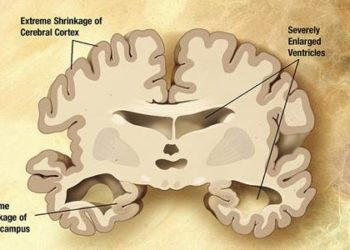Familial natural short sleep mutations may reduce Alzheimer’s Disease pathology in mice [PreClinical]
1. Certain sleep phenotypes, such as those with the familial natural short sleepers (FNSS) mutation, anecdotally do not exhibit the neurocognitive changes of Alzheimer’s Disease.
2. In this study, the FNSS mutation, which is possibly associated with more efficient sleep, was found to impede tau and amyloid plaque build-up in Alzheimer’s Disease mouse models.
Evidence Rating Level: 2 (Good)
Sleep deprivation and dysregulation are known to contribute to the progression of Alzheimer’s Disease (AD). Certain sleep phenotypes, such as Familial Natural Short Sleepers (FNSS), confer individuals to sleep fewer hours at night, and many are within an age range when AD would commonly develop. However, anecdotally these individuals do not exhibit the neurocognitive changes associated with AD, possibly due to increased sleep efficiency. As such, this study investigated the impact of 2 FNSS mutations (DEC2 and Npsr1) on the development of amyloid beta (AB) and tau pathology in AD-like mouse models.
In this study, FNSS mice models (DEC2 and Npsr1) were first cross bred with commonly used AD models (PS19 and 5XFAD APP) which exhibited AB and tau pathologies. Wild-type mice were also cross bred with the FNSS mice models and AD models to create control groups. Subsequently, various immunohistological analyses were performed on the cortical and hippocampal regions of cross-bred mice to assess for the development of AB and tau pathology over time.
Study results demonstrated that in the PS19-mouse model carrying both FNSS mutations, the development of tau pathology was reduced in the hippocampal region compared to control mice. Furthermore, in the 5XFAD APP-mouse model carrying both FNSS mutations, the development of AB pathology was reduced in the cortex and hippocampus compared to control mice. However, this study was limited in that the study was performed using select mice models, from more than 100 genetically different mouse lines, limiting generalizability of results. Nonetheless, this study was significant in suggesting that efficient sleep may be a therapeutic target for halting the progression of AD.
Click to read the study in iScience
Image: PD
©2022 2 Minute Medicine, Inc. All rights reserved. No works may be reproduced without expressed written consent from 2 Minute Medicine, Inc. Inquire about licensing here. No article should be construed as medical advice and is not intended as such by the authors or by 2 Minute Medicine, Inc.







